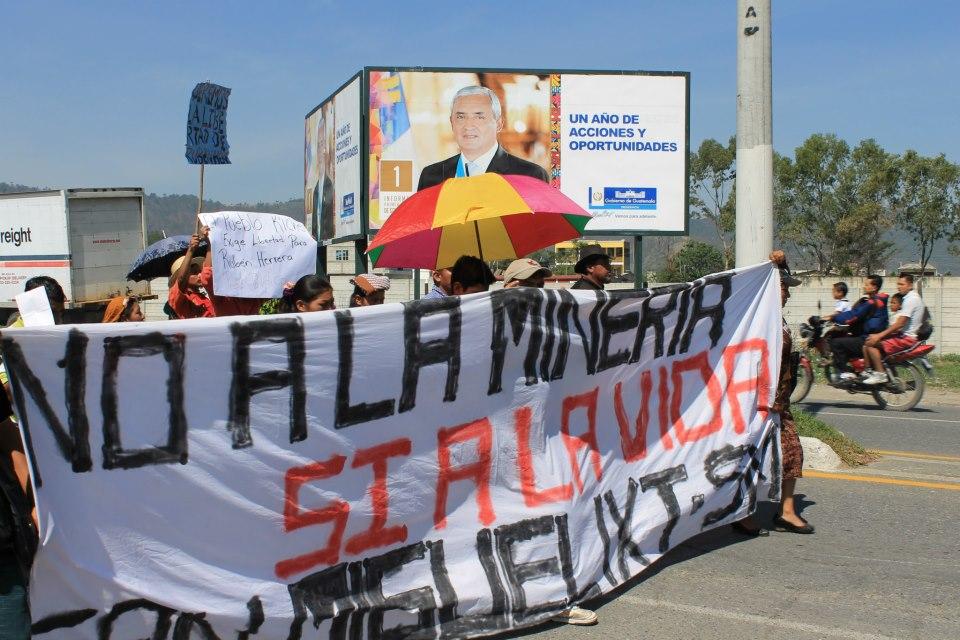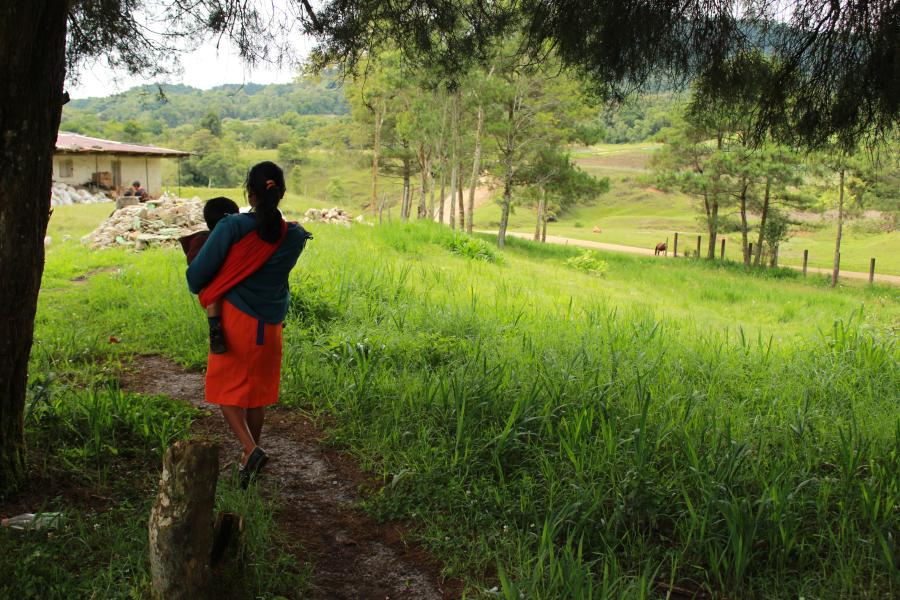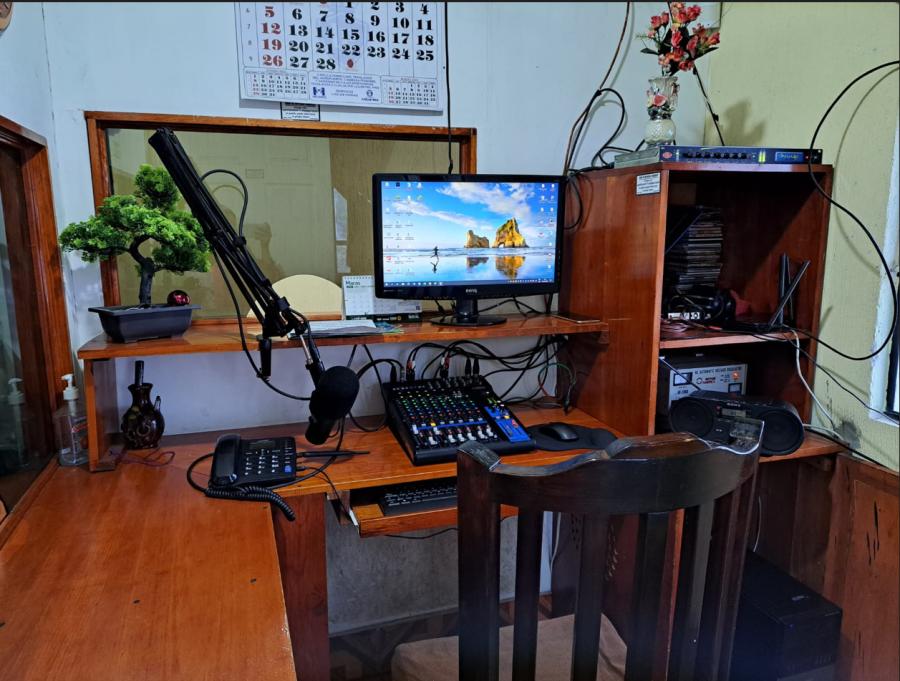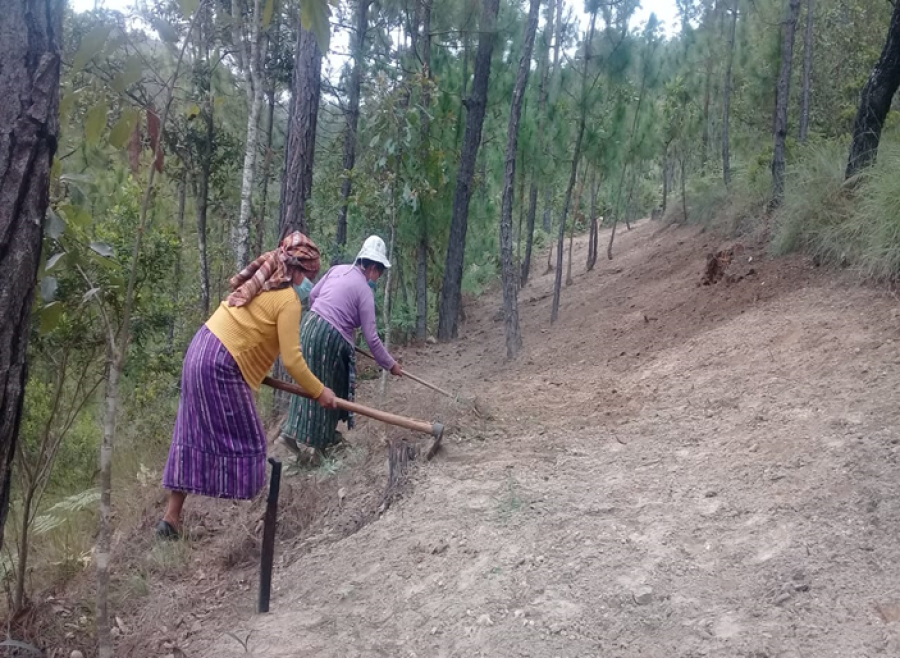
On May 1, 2013, Otto Perez Molina, Guatemalan President and former general during the country’s 36-year armed conflict, declared a 30-day State of Siege in four municipalities surrounding the El Escobal Silver Mining Project, run by Canadian mining giants’ Tahoe Resources. The State of Siege suspended basic constitutional rights, prohibiting public assembly and peaceful protests, allowing unwarranted searches, and giving power to authorities to detain individuals at their whim.
According to president Molina, this State of Siege was declared in order to deal with organized crime and was in no way related to opposition towards the mine. However, it is clear that the sole reason for this state of siege was to prevent the protests that had been taking place for months in front of the Canadian silver mine. This is the pretext that the Molina government has used in the past as an excuse to infringe upon the rights of Indigenous communities in order protect foreign corporations, which are a source of revenue for the government. Individuals in these communities experience heightened levels of violence and infringements upon their basic rights.
[[{"fid":"61684","view_mode":"media_original","type":"media","attributes":{"height":854,"width":1280,"style":"width: 400px; height: 267px; ","class":"media-element file-media-original"}}]]
Daniel Pedro Mateo, environmental activist, community leader and community radio founder who was kidnapped and murdered due to his opposition to Hidro Santa Cruz's hydroelectic dam in Barrillas, and his wife.
Those who experience the highest risk of being arrested, kidnapped, or murdered are community leaders and individuals who are most active against these environmentally devastating projects. In March, Exaltación Marcos Ucelo, an Indigenous Xinca leader active against this mine was found beaten to death, after being abducted alongside three other Xinca leaders. Last year, anti-dam activist and community leader, Andres Fransisco Miguel, was shot and killed by security guards of Hydro Santa Cruz in Barillas. Last month Daniel Pedro Mateo, environmental activist and community radio founder was kidnapped and murdered due to his opposition to the same hydroelectric dam. Finally, on May 7, another community leader, Mynor López, from Barillas was captured by police for protesting against this dam.
For many, the actions of the current government are seen as a continuation of the genocide that occurred in the 80’s. “We fear for the lives of our leaders,” stated a message circulated online by the Xinca People’s Parliament, denouncing the mobilization of armed forces in Jutiapa with the alleged intention of arresting Xinka leaders in Santa María Xalapán, Jalapa. “We’re returning to the 1980s, with the persecution of leaders, extrajudicial execution and forced disappearance.”
[[{"fid":"61716","view_mode":"media_original","type":"media","attributes":{"height":640,"width":960,"style":"width: 400px; height: 267px; ","class":"media-element file-media-original"}}]]
The protest for Indigenous and Environmental rights in Huehuetenango on May 1st.
Despite the dangerous state that Indigenous leaders and environmental activists find themselves in Guatemala at this time, this has not deterred them from diligently opposing unethical, exploitative projects like the Tahoe Resources mine in Jalapa. This Wednesday, dozens of Indigenous leaders held a dramatic demonstration inside the Guatemalan congress, where lawmakers were meeting to consider ratifying the State of Siege. “Justice! Justice!” they shouted, forcing their way into the congressional chamber, “No to militarization! We have suffered enough under the Army! Get out of our pueblos now!”
[[{"fid":"61717","view_mode":"media_original","type":"media","attributes":{"height":640,"width":960,"style":"width: 400px; height: 267px; ","class":"media-element file-media-original"}}]]
Indigenous women at the protest in Huehuetenango holding a sign that says "We are not criminals, we defend our lives and our territory"
Fortunately, these demonstrations have not fell upon deaf ears. On May 9, yesterday afternoon, it was announced that the government would be removing the state of siege and replacing it with a state of prevention. This is evidence that these community efforts to better Guatemala are not futile. It is not only imperative that Indigenous communities here in Guatemala continue to fight. They need the support of the international community to ensure that the violence and brutality that they are experiencing is not overlooked. The more voices that speak out against these projects, and the more pressure that we place on the government to make changes, the more likely it will be that we will see advances.



